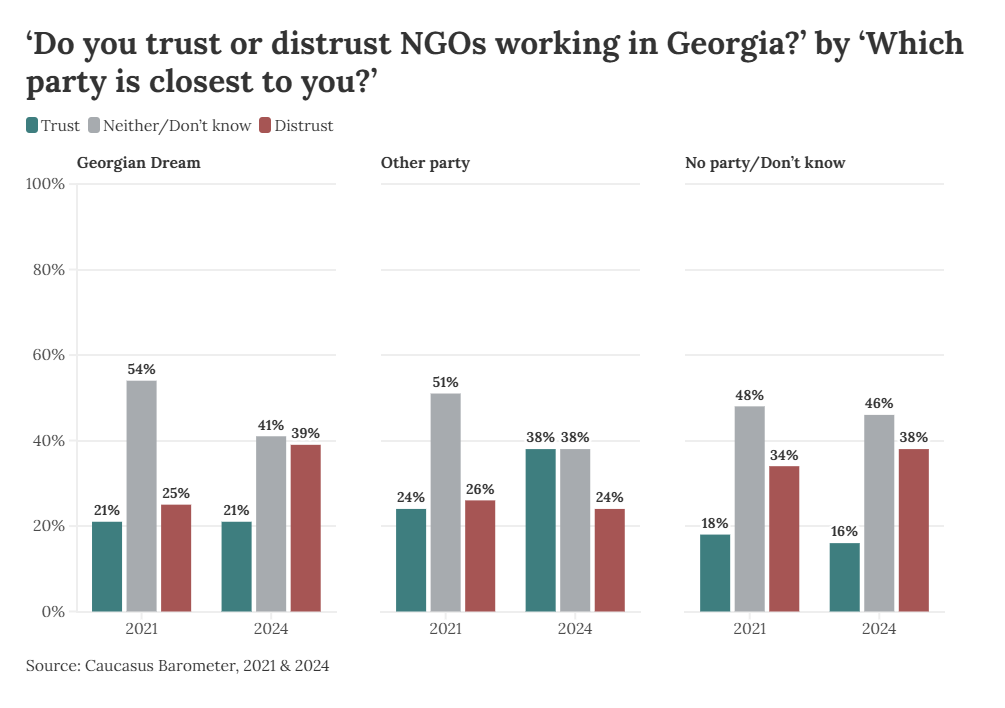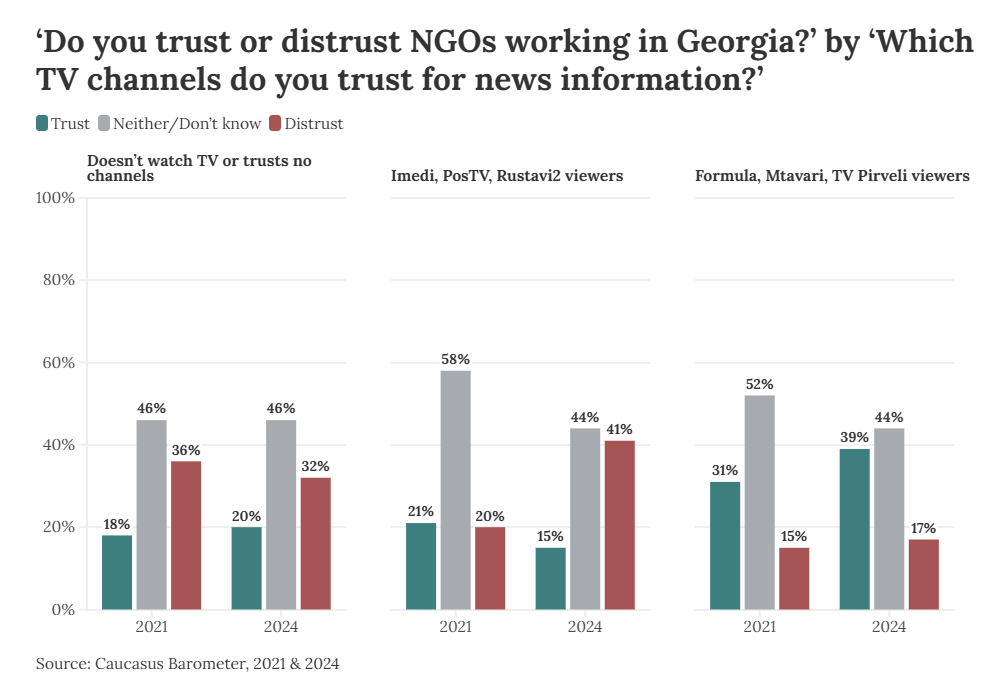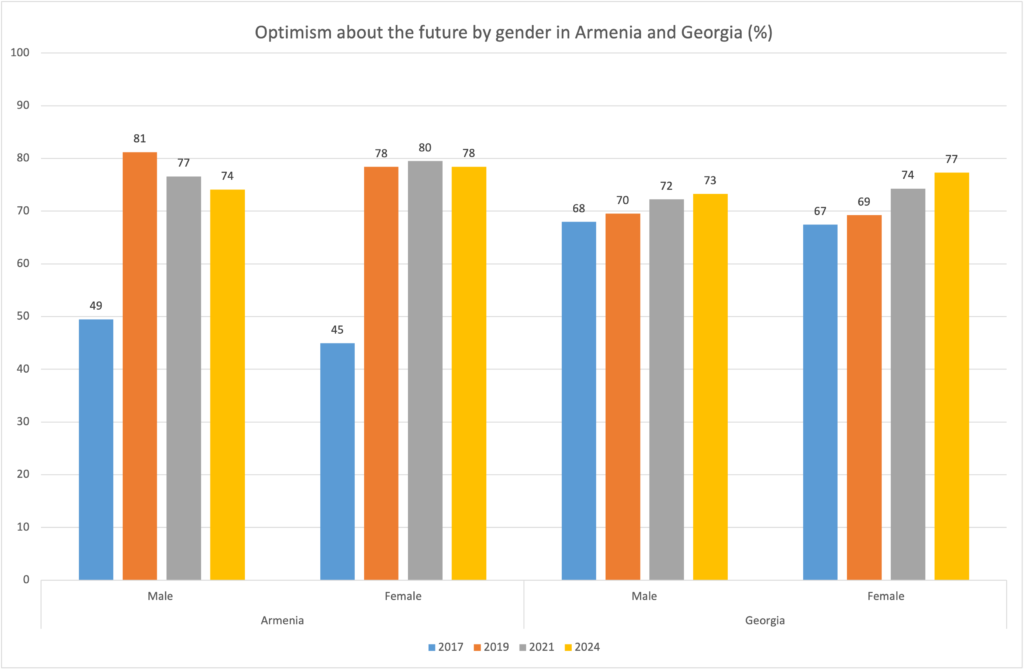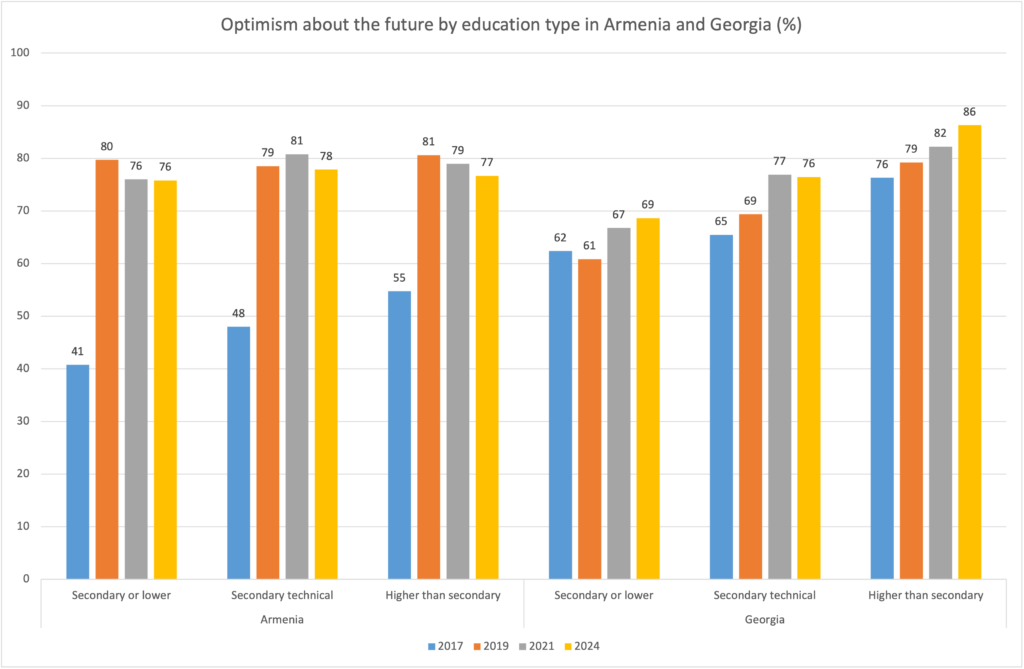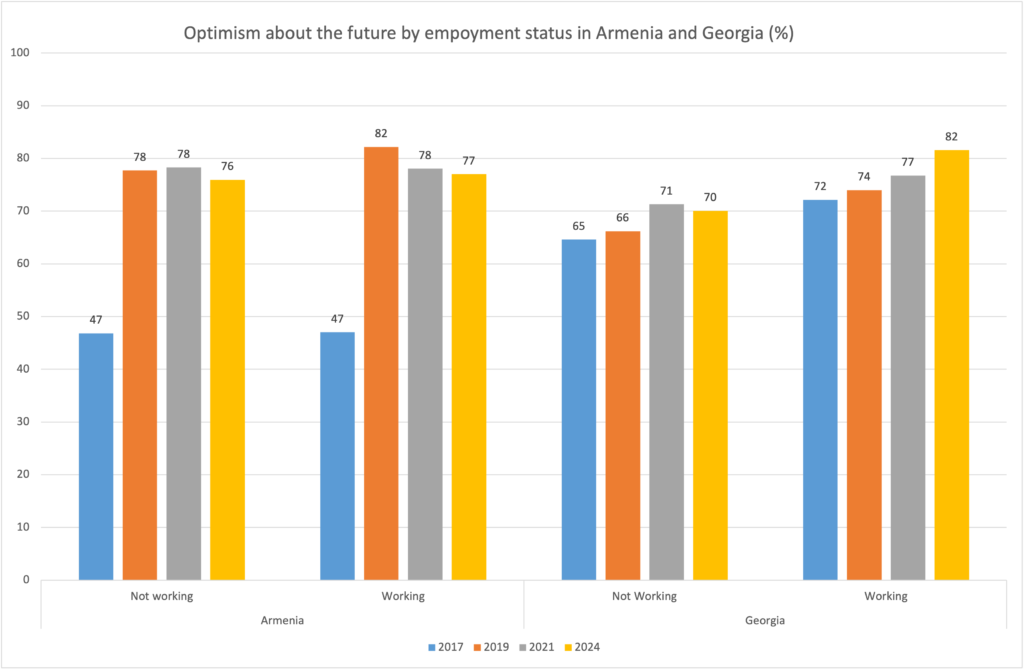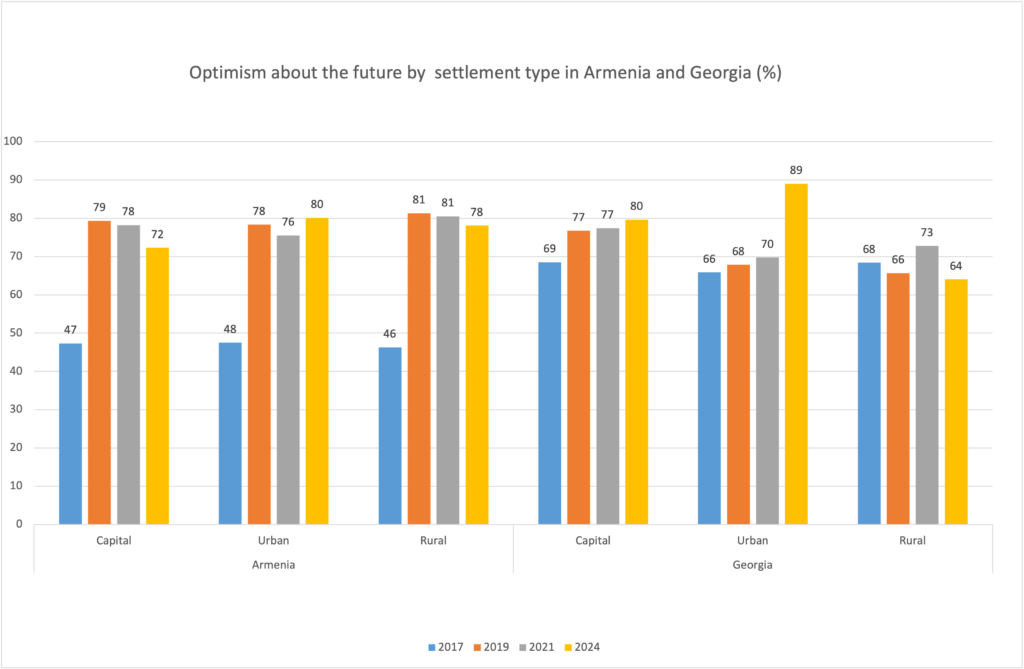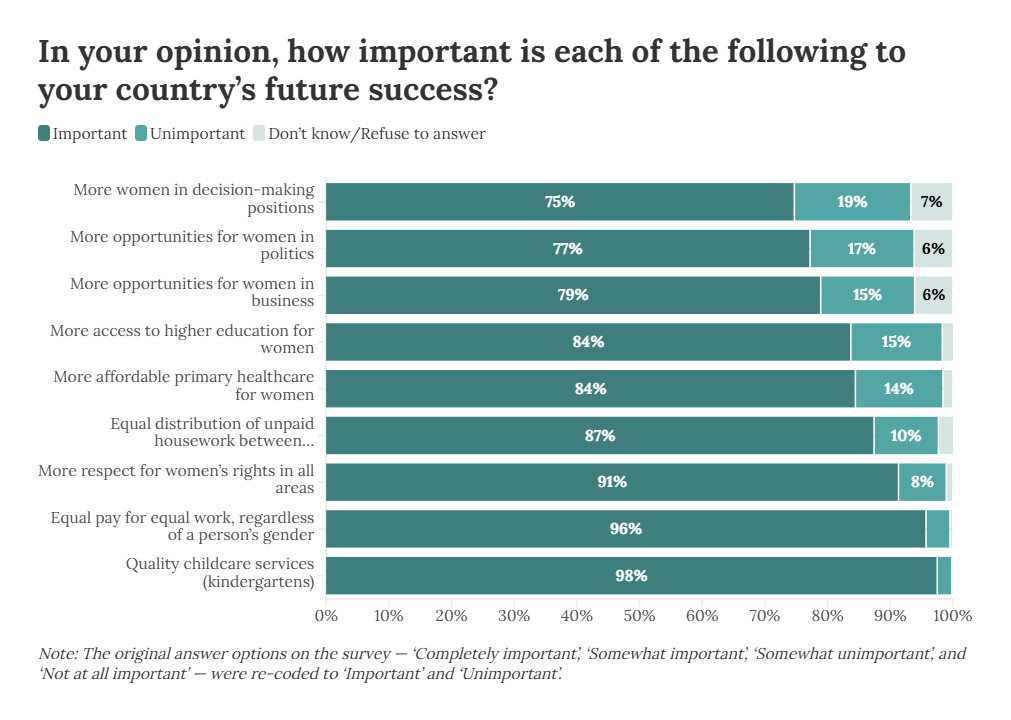Note: This article first appeared on the Caucasus Data Blog, a joint effort of CRRC-Georgia and OC Media. This article was written by Teimuraz Kobakhidze and Katharine Khamhaengwong, researchers at CRRC Georgia. The views expressed are those of the authors and do not necessarily reflect the views of CRRC Georgia or its affiliates.
Data from the ISSP 2018 religion survey shows that while Georgians have more confidence in churches and religious organisations than in schools, the business world, the legal system, and parliament, they also largely believe that religious leaders should not try to influence how people vote. In total, very few believe that churches and religious institutions in Georgia should have more power.
The relationship between the state and the Georgian Orthodox Church is complicated and contested. While the Georgian government has provided the church with an annual budgetary allocation of millions of dollars, the government has also proposed and passed various measures the church has opposed, ranging from making Orthodoxy the state religion to protections for various minority groups.
Within the general populace, two thirds (67%) of Georgians have a great deal of confidence in churches and religious organisations, and 88% have at least some confidence in them. As other CRRC research has consistently shown, people’s own religious organisations and the army are the most trusted institutions in Georgia. This pattern appears within the ISSP survey as well, with churches and religious organisations being the most trusted institutions asked about on the survey. As the vast majority of Georgians are Orthodox Christians, the religious institution in question will typically be the Georgian Orthodox Church.

However, despite this confidence, 71% of Georgians agree that religious leaders should not try to influence how people vote, compared to 15% who disagree, 9% who neither agree nor disagree, and 4% who were uncertain or refused to answer the question.
Additionally, a plurality of Georgians, 42%, think churches and religious institutions have too much power in the country, while only 14% think they have too little power. Slightly over a third (36%) think religious organisations have the right amount, and 8% refused to answer or were uncertain over how to respond to the question.
Regression analyses looking at settlement type, sex, age group, education, having a partner or not, and frequency of religious service attendance shows that attitudes vary among different groups towards religious institutions’ role in society.
For confidence in churches and religious groups, sex, age group, and relationship status were not predictors of attitudes, while settlement type, education level, and religious service attendance were.
The groups most likely to express a great deal of confidence in churches and religious institutions were people in rural areas, weekly church attendees, and people with a secondary or lower education.

Education level similarly predicted responses to whether people believe religious leaders should try to influence voters — people with a higher education were less likely to agree that religious leaders should try to influence votes. Sex and relationship status were also correlated: women and those without partners were more likely to say that religious leaders should not influence voting.
Settlement type, age group, and frequency of religious service attendance did not predict attitudes.

Unlike the previous two questions, education level was not predictive of views on whether or not churches and religious organisations had too much or too little power in society. Settlement type, sex, and relationship status were likewise uncorrelated.
Age and frequency of religious service attendance, on the other hand, were predictive.
People who never or very rarely attended religious services were most likely to say that churches and religious institutions had too much power. Similarly, young people (18–34) were more likely to believe religious institutions have too much power. Notably, people who attended religious services monthly were actually more likely than those who attended weekly to think churches and religious institutions should have more power — 20% compared to 15%.

Despite their general favourability toward the church and religious institutions, Georgians do not think these institutions should have more power or that their leaders should try to influence voters.
The data used in this article is available here. The regression analysis used in this article included the following variables: settlement type (capital, other urban, rural), age (18-34, 35-55, 55+), sex (male or female), education (secondary or lower, secondary technical, or higher than secondary), employment status (employed or unemployed), relationship status (has a spouse or partner, does not have a spouse or partner), and frequency of attendance of religious services (never or less than once per year, at least once per year, at least once per month, at least once per week).

